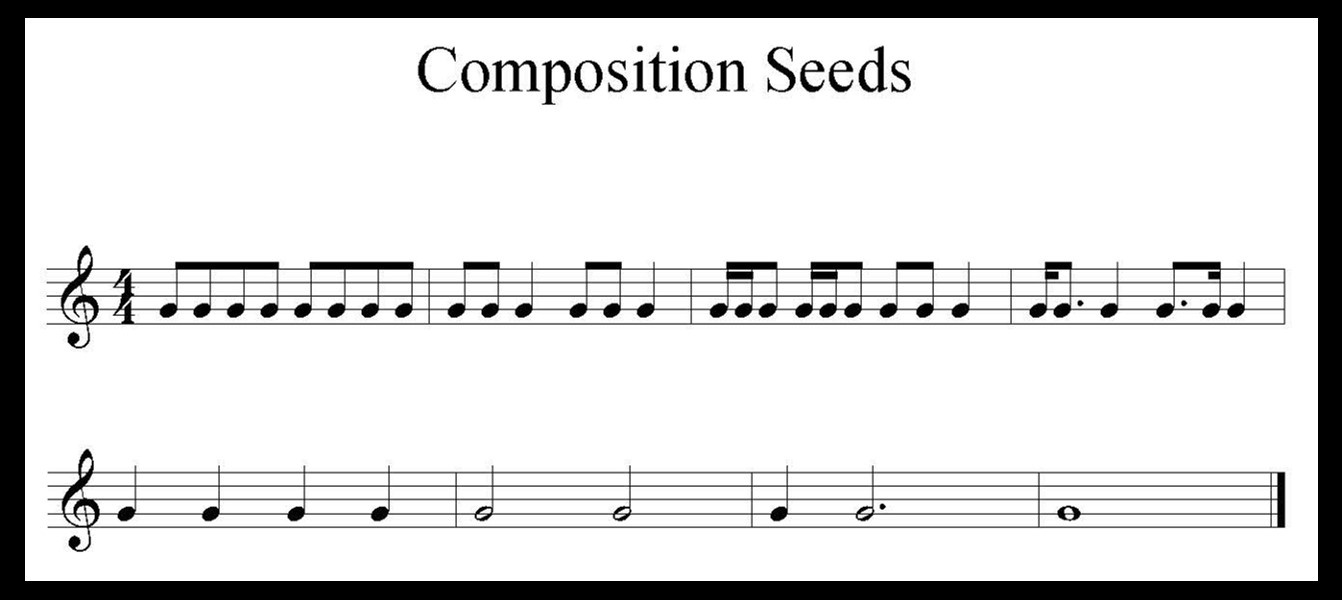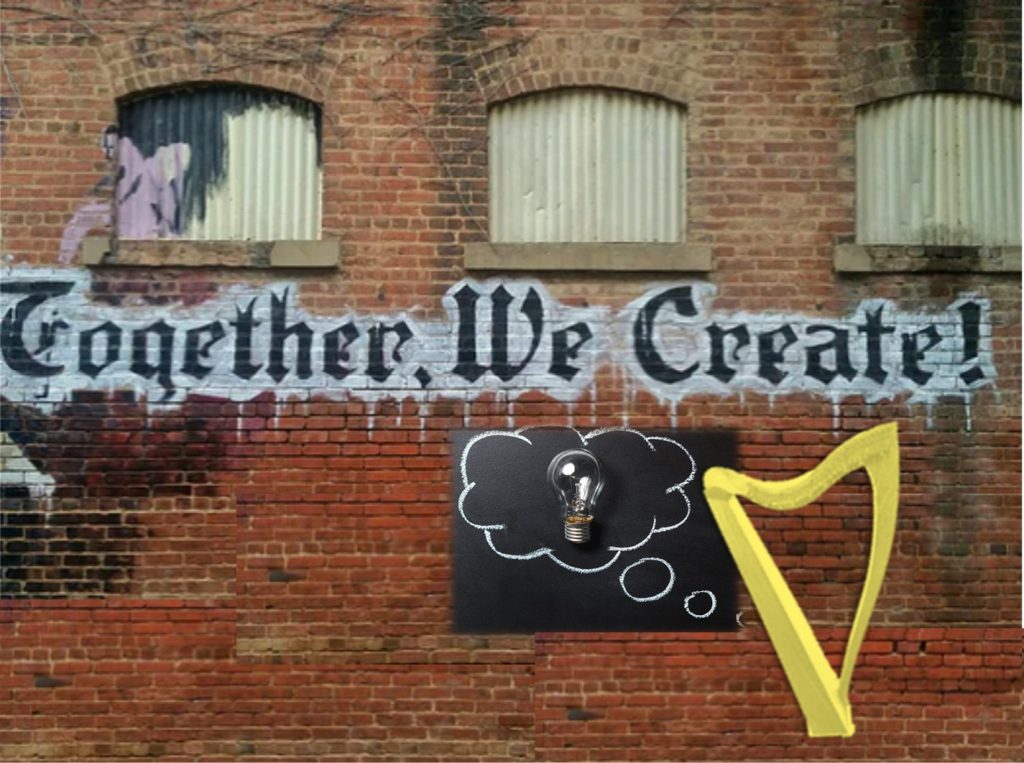Next week we’ll be sharing our compositions – so exciting!
How’s yours coming along? Some of you have sent me delightful peeks at what you’re working on. Some of you are already done.
What’s that? You haven’t started? You don’t think you can do this? You have no idea how to get started?
!!!
No worries! You CAN do this. Please, please, please do not talk yourself out of giving this a try!
I realize this can be daunting. It can be intimidating. You may sit on your bench repeating over and over in your head a low moan: Ican’tdothisI’mnotacomposerI’mnotabrilliantartistIhavenogreat ideaswhydidIevenconsiderthis! *
 Here’s the thing, it might be intimidating because, unlike a writer or a painter, you have few constraints. A writer has only the single sheet of white paper. The painter has only to consider the single canvas.**
Here’s the thing, it might be intimidating because, unlike a writer or a painter, you have few constraints. A writer has only the single sheet of white paper. The painter has only to consider the single canvas.**
But we musicians? We have time and space, pitch and rhythm, tempo and time signature, timbre and technique. We have oodles of variables and we haven’t even started thinking about what shape we might be headed toward!
So, to help you along, I’m going to help you narrow your scope. Remember, you don’t have to write a masterpiece! Just compose something. You’re not Mozart or Shubert or J.S. Skinner! And remember, those guys may be known for their masterpieces, but they all started somewhere! We are all beginners at some point (side note – avoid people who forget this important fact! They are toxic – you can do this!).
Remember the major parts of a tune – you need rhythm and pitch. Find that overwhelming? Start with one and then overlay the other on top of it.
I brought you some rhythm seeds that you could start with if you don’t know where to look – to get your creative juices flowing! Use whichever ones you like or add more – there are literally loads of options! They look like one composition (maybe they are?) but feel free to cut/paste as you like – or throw them all away or pick and mix! It’s your composition!
- Keep it simple – there are only seven notes in a scale (in modern western music) so that’s fairly limiting in and of itself!
- While we’re keeping it simple, stick to a single scale. Like light and happy? Use a major. Feeling dark and moody? Use a minor scale. Feeling stressed? Use a pentatonic scale!
- If you’re stuck, use a simple time signature that you’re used to playing in. Like 4/4? Then use that. Always seem to be thinking in 6/8? Then use that.
- No source is too good for you! In the comments last week Sue Richards shared a great starter idea. If you missed it, she said,
” Recently on the Nordic FB group, we learned from Mark Harmer how to write tunes based on your name. Here’s the thing:
 So my name, Sue, is EGE. Richards is DBCAADDE. So I made a tune out of that. You choose the time signature and key, and develop a LH. It’s pretty cool! I’ll try to post the tune I wrote. I also added my husband Bill: BBDD for the second half of the tune. Good luck, be creative!”
So my name, Sue, is EGE. Richards is DBCAADDE. So I made a tune out of that. You choose the time signature and key, and develop a LH. It’s pretty cool! I’ll try to post the tune I wrote. I also added my husband Bill: BBDD for the second half of the tune. Good luck, be creative!”
- Another way to get rhythm and pitch is to listen to yourself saying something (which might become your lyrics?). You can use the rhythm of your words and the pitch of your voice as a guide to what you tune might shape up to be. Use a favorite poem or saying as a starting point.
- Finally, please do not compare your output to anyone else’s. This is not a competition! It is a challenge to each of us to get out of our own way, to try something different and a little bit stimulating! In no way should anything about this make you feel bad (well, unless you told me (and yourself) that you were going to do it but you’re letting yourself slide because it’s a little uncomfortable!).
If you find you are still getting in your own way, sit down on your bench, BREATHE, turn on your phone recorder (the one with the really big red “DELETE” button which is ever so useful!), and tickle your harp. And when it starts to giggle – you can giggle too. Then you’re having a fun time and you’ll probably enjoy the whole thing (just a little…even if you won’t admit it out loud!).
How’s your composition coming? Remember you can send a video, an audio file, sheet music, a photo of the napkin you wrote it on. Still stuck and want other suggestions? Let me know in the comments below! When you’re ready to send me your composition (which can totally be in draft form, it’s not a race after all!) – let me know in the comments and we’ll get these collected for next week!
Happy Composing!
*I realize this is hard to read (it was a little bit hard to type) but it says, “I can’t do this. I’m not a composer. I’m not a brilliant artist. I have no great ideas. Why did I even consider this!” – All TOSH!
**Yes, gross oversimplification, but the idea isn’t to turn you into a writer or a painter!




